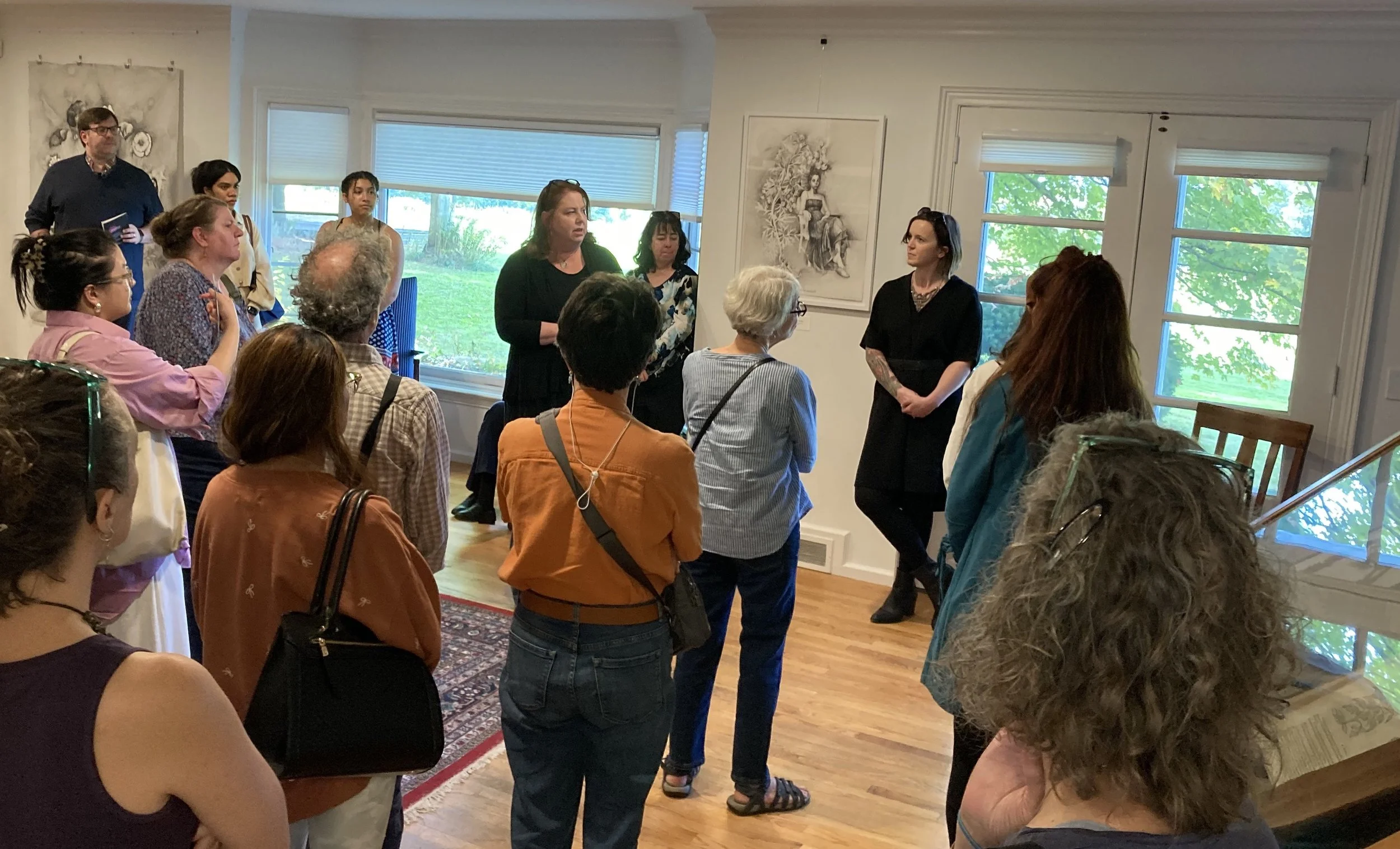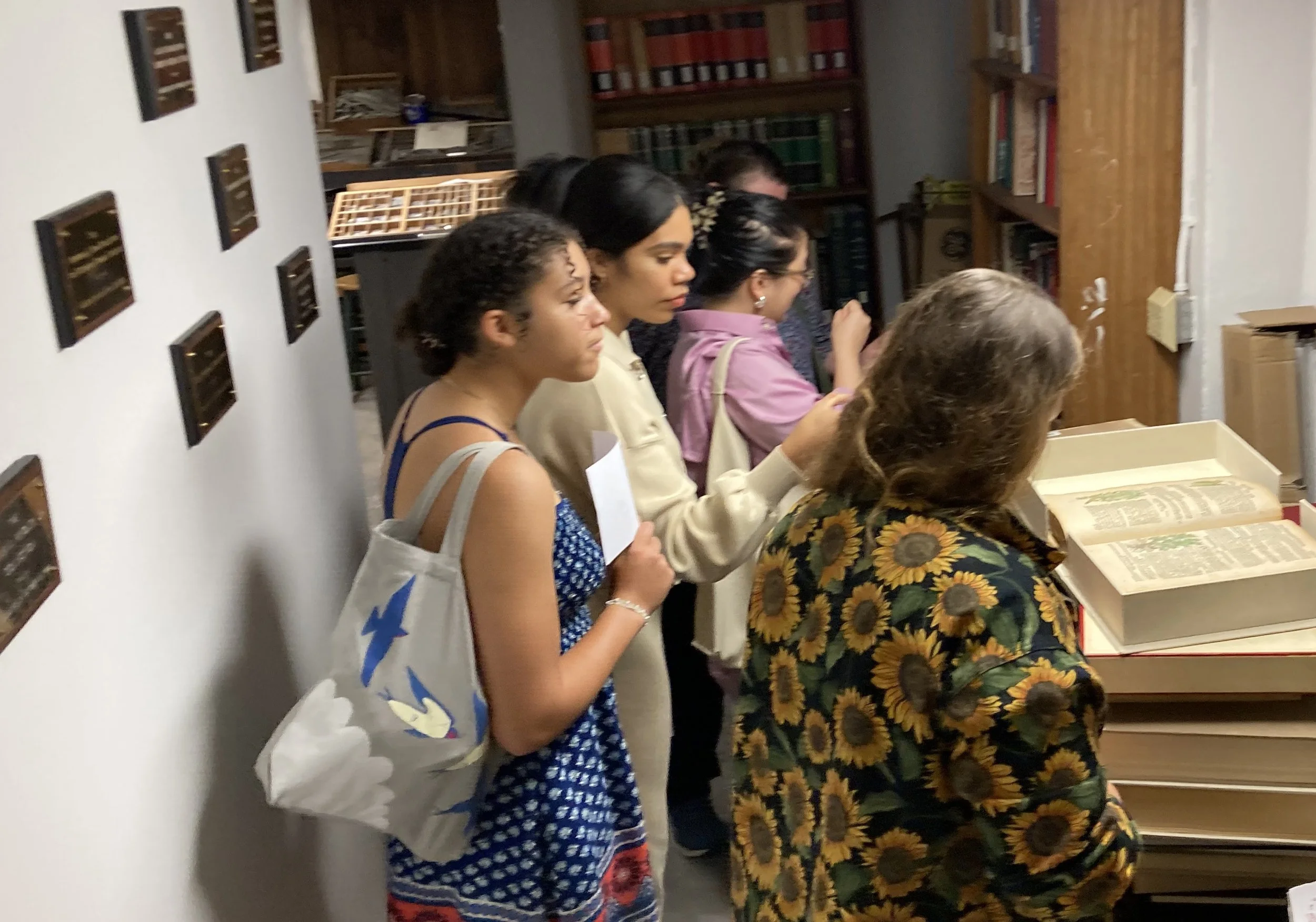
William Lawson, The Country Housewives Garden in A New Orchard and Garden (1648)
This manual offers advice on how one might manage their kitchen garden and, in doing so, makes the distinction between women's "common" knowledge and men's "expert" knowledge.
Held in the Kinney Center's rare book collection.

Datura stramonium, also called "Thornapple" for its spiky seedpods or "Devil's Trumpet" for the bell shape of its blossom. Medicinally, thornapple can reduce inflammation, however, it is highly poisonous and can cause delirium, psychosis, and even death.
This specimen is held in the UMass Herbarium.

John Gerard, The Herball, or Generall Historie of Plantes (1633)
Open to the entry for Devil’s Trumpet, this example invites visitors to consider the medicinal properties of this deadly plant--for example, when boiled with lard it is an effective anti-inflammatory.
Held in the Kinney Center's rare book collection.

Original artworks are displayed alongside the books that inspired them in the reading room. Visitors to the exhibit opening for Fatal Flora meet artist Susan Montgomery and learn more about her work.

John Reynolds, The Triumphs of God’s Revenge
Against the Crying and Execrable Sin of Murther (1679)
This chronicle contains several "histories" detailing a variety of murders, several of which involved poisons--particularly women poisoning their husbands with plants.
Held in the Kinney Center rare book collection.

Aconitum napellus, also known as "wolfsbane" or "queen of poisons"
While sometimes used as a sedative or fever reducer, a very small dose of wolfsbane can cause respiratory paralysis and heart failure.
This specimen is held in the UMass Herbarium.

Students attending the opening of Fatal Flora engage with a variety of rare material available in the Center’s collection.






